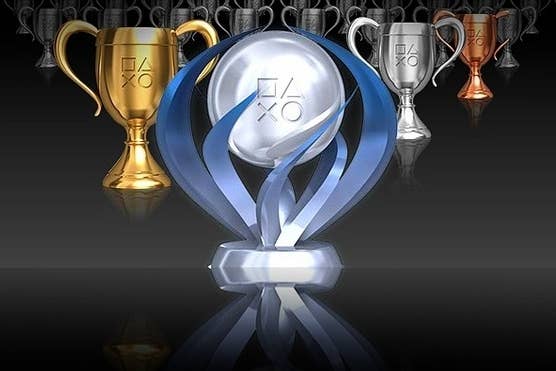Persons of the Year 2012 - Part One
Whose impact on the games industry was felt the greatest over the last 12 months? We offer our take
With each year that goes by in the fast-moving games industry, the staff at GamesIndustry International likes to take a look back and reflect on those individuals who helped to shape the last 12 months of gaming, those people who had the biggest impact on the business across the globe, whether for good or ill. The games business has been in a period of rapid change in recent years, and as the industry sees new technologies and platforms continually pop up, the people who stand out each year can often be very different.
It all makes selecting a top 10 list of individuals an interesting task, and it also means that any sole person's inclusion or exclusion from the list can be a source of much debate. We certainly had our fair share of discussion among staff.
And so, here are our choices for Persons of the Year. Part Two will be posted tomorrow, when we'll count down the top five and discuss why our number one choice was so important in 2012.
10. Agent 47
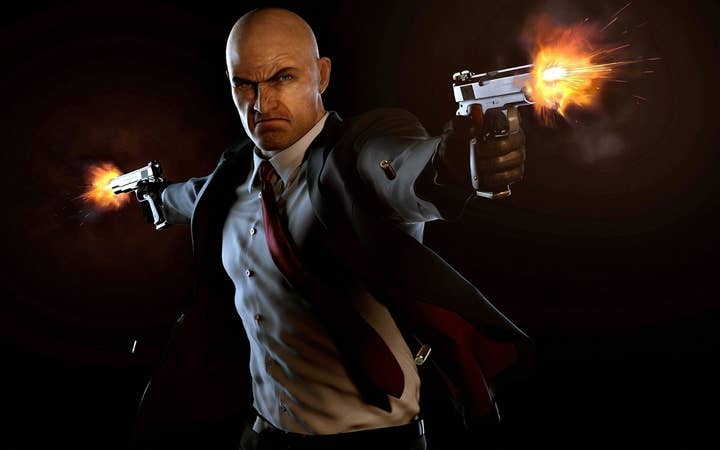
Hitman: Absolution is the game in the franchise where the ruthlessly efficient assassin Agent 47 grows a conscience and refuses to carry out a mission that he believes goes too far. As such, he's a perfect--albeit fictional--personification of the game industry's 2012, which will be remembered as a time of unprecedented controversies of conscience in the industry. Unfortunately for the bald and barcoded anti-hero of Square Enix's latest release, he was at the center of a couple of the more notable gaming community firestorms this year.
In May, Square Enix released a trailer for Absolution showing Agent 47 killing eight women dressed as sexual playthings. The clip showed Agent 47 in his trademark designer suit, savagely dispatching a group of former strippers dressed in S&M nun outfits. The marketers behind the clip expressed surprise when people took offense, and said it was not their intent to manufacture controversy for the sake of awareness. The impact of that statement would later be undermined when Square Enix rolled out a Hitman: Absolution Facebook app that let users virtually put a hit out on their friends, telling Agent 47 that he could identify the target by a variety of bully-friendly traits like bad odor or "small tits." Square Enix quickly pulled the app and apologized, but the damage/boost in awareness was done.
So congratulations, Agent 47. You are at once a reflection of gaming's 2012, a reminder of the industry's narrow-minded past, and perhaps an unwitting instigator ushering in its future.
9. Curt Schilling
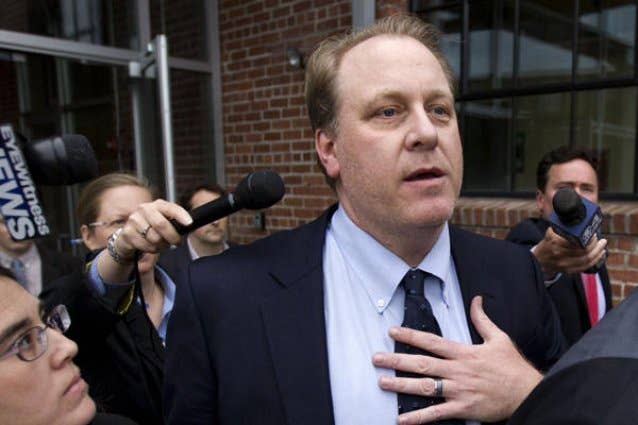
Some companies limp toward their ultimate demise, tightening the belt and prolonging the inevitable as long as humanly possible, no matter how many asset fire sales or reverse stock splits it takes. Others rush toward oblivion with head up and arms open, accelerating all the way, ever confident that something will happen to turn things around. As you may have heard by now, Curt Schilling's 38 Studios was more the latter type of company. The year started out optimistic for 38 Studios, as February saw the six-year-old developer launch its very first game, Kingdoms of Amalur: Reckoning, to strongly positive reviews and respectable sales. It wouldn't be nearly enough.
In mid-May, the state of Rhode Island said it was trying to help 38 Studios stay afloat so that it could eventually pay back $75 million in loans the state had backed. The situation deteriorated rapidly after that. Two days later, the studio made a missed loan payment rather than pay employees. Within a week, 38 Studios shut down entirely, laying off nearly 400 employees between its Providence headquarters and Maryland-based subsidiary Big Huge Games. In the days that followed, horror stories emerged from former employees about how the studio withheld pay, allowed their medical insurance to lapse, and even stuck some with second mortgages as a result of the collapse.
In the aftermath, Schilling was portrayed as a hypercompetitive Hall of Fame pitcher so convinced of his own inevitable success that he made no preparations for the possibility of failure. "I never doubted I was going to do it," Schilling said. "My whole life was spent doing things that people didn't believe were possible, because God blessed me with the ability to throw a baseball. And I carried that same mentality into everything I did here."
Now Schilling is out many millions of dollars from his personal fortune, and facing lawsuits from banks and backers looking to take millions more. However that legal action turns out for him in the future, Schilling's legacy in the gaming world was written in 2012. He was not an evil, heartless employer seeking to hurt the hundreds of people in his charge. He was perhaps just grossly negligent, and hurt them all the same.
8. Brandon Beck and Marc Merrill, CEO and president of Riot Games
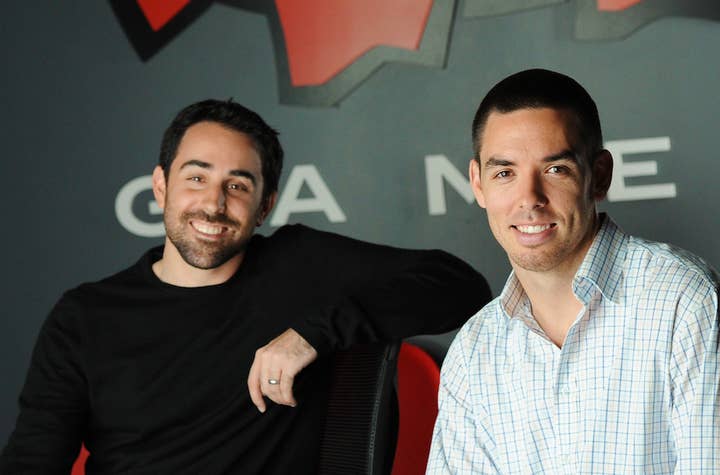
Brandon Beck and Marc Merrill are the co-founders of Riot Games, and their unusual shared leadership roles are among the many qualities that have put them on the list of our Persons of the Year. While Beck is listed as CEO and Merrill is listed as president, functionally they operate as co-captains of Riot Games, and they've been doing that since founding Riot Games in 2006.
Riot Games launched its one and only game so far, League of Legends, in October of 2009. The game has become a worldwide phenomenon, generating revenues rumored to exceed $150 million per year with a very healthy profit margin. Beck and Merrill have managed to do several improbable things. They've created a free-to-play hardcore game that monetizes exceedingly well without endlessly badgering players to spend money; they've kept this game growing at a tremendous rate for three years; and they've made their game an eSport with millions of dollars in prizes and dozens of professional players.
Beck and Merrill have done all this while creating and maintaining a corporate work environment that seems to be both hard-working and hard-playing. Riot has even created a department solely designed to improve player behavior and civility; recently they banned one of the top professional players for a year because of repeated bad behavior online. Most companies have just complained about bad player behavior online; Riot is actually working hard to improve it, and is getting results.
Beck and Merrill also deserve recognition for what they haven't done. They haven't lost focus on their game, and continue to improve the game and extend its reach. They haven't created a slew of other games, or indeed any other game yet; while they are no doubt working on one or more, it seems clear they will not allow that to diminish the efforts to improve League of Legends. They haven't let the over $400 million dollar investment in their company by Chinese game giant Tencent affect either their management or their company. They also haven't forgotten about the employees who work hard to make their vision into reality; the company hasn't seen the regular layoffs that seem to occur at so many publishers.
Beck and Merrill have created a game and a company that are frequently mentioned as leaders in the free-to-play space, and they've done it with style and class.
7. Yves Guillemot, CEO of Ubisoft
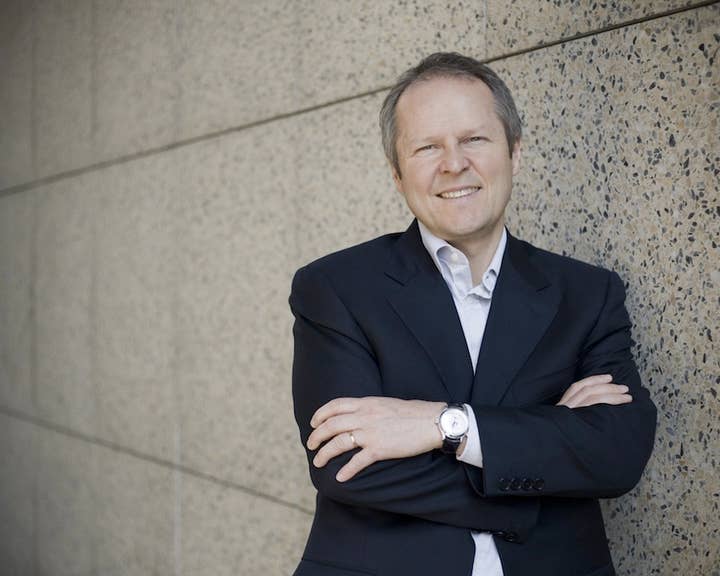
Video games aren't made in the boardroom. Indeed, the decrees and directives handed down from the executive level of the industry's publishers can often work against the interests of their products, but every so often a company gets the mix just right. In 2012, it was Yves Guillemot's Ubisoft.
By the close of the year Ubisoft had achieved a level of consistency and quality that its larger competitors didn't come close to matching, releasing products that combined high polish and a rare sense of daring on a variety of platforms, and in a variety of genres: AAA blockbusters didn't come smarter or more distinctive than Assassin's Creed III and Far Cry 3, Trials: Evolution offered more entertainment per cent than just about any other digital release, Rayman: Jungle Run was a gorgeous, addictive high-point for iOS, and early Wii U adopters are more excited about ZombiU than any of the reheated IPs in Nintendo's line-up, and rightly so. From the point-of-view of the gamer, no major publisher delivered quite as well as Ubisoft, and on the evidence of its electrifying Watch Dogs presentation at E3, there's much more to come.
And Ubisoft was no slouch in business development, either. Under Guillemot's expert care, Ubisoft is now building a mega-studio in Toronto to rival its huge campus in Montreal, leaving the company well placed to grow further over the next few years. And it even seems poised to make a credible attack on Hollywood, with star-studded adaptations of Assassin's Creed and Splinter Cell now entering production.
In a just world, this sort of performance would catapult Ubisoft to that elusive higher tier alongside EA and Activision. Maybe next year.
6. Yoshikazu Tanaka, CEO of Gree
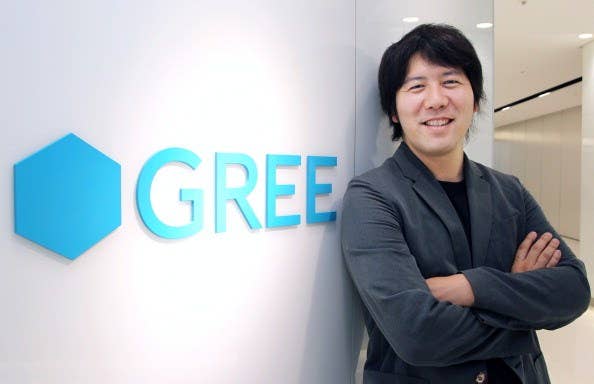
Tanaka, CEO of the increasingly visible and pervasive Japanese mobile giant Gree, is one of those people it would be very satisfying to find was somehow flawed. Only 35 years old, and recognised as the world's second youngest self-made billionaire after Zuckerberg, Tanaka has guided the nine-year-old Gree into a position of dominance in Japanese mobile/social gaming, alongside its great rival DeNA.
So he's young, extremely rich, massively successful and not suffering from any sort of obvious disfigurement. Annoyingly, as we discovered when meeting him in Paris earlier this year, he's also very pleasant - chatting humbly (albeit via translator) and operating behind an almost permanent smile. Somewhat frustratingly, he's also so slickly media trained that the interview was actually too predictable to use, but Tanaka hasn't achieved the things he has by being rash or outspoken.
If you've not heard of Gree yet, you will. Despite having to cut some jobs in the US and move some development back to Japan last month, Gree has achieved a huge amount this year. Not only did Tanaka buy OpenFeint, his company also owns Funzio and has partnered with Mind Candy in the past year, as well as recovering from the Japanese crack down on "complete gacha" mechanics.
He might be young and friendly, but underestimate him at your own risk.
Please check back tomorrow for the conclusion of the countdown, when we unveil our top five picks.
